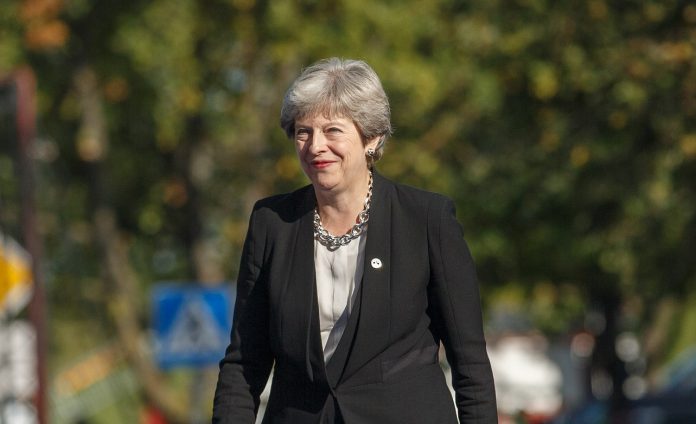British Prime Minister Theresa May finally published the White Paper for UK relations with the EU post-Brexit. The beleaguered PM said the blueprint, which was published amid chaotic scenes in the Commons, “delivers on the Brexit people voted for”.
New Brexit Secretary Dominic Raab, formerly a leading figure in the Leave campaign, said the White Paper was a blueprint for a “principled, pragmatic and ambitious future partnership between the UK and the EU”.
“Now, it is time for the EU to respond in kind, we approach these negotiations with a spirit of pragmatism, compromise and, indeed, friendship, I hope. I trust that the EU will engage with our proposals in the same spirit,” he told MPs.
As reported by the BBC, however, the paper fleshes out the Chequers agreement that sparked the resignations of Boris Johnson and David Davis.
And critics remain unconvinced. Tory Brexiteer Jacob Rees-Mogg said it was a “bad deal for Britain”.
“There are very few signs of the prime minister’s famous red lines,” he said. “It is a pale imitation of the paper prepared by David Davis, a bad deal for Britain. It is not something I would vote for, nor is it what the British people voted for.”
Former Conservative leader Iain Duncan Smith told ministers he had “deep misgivings” about the White Paper. “I voted to leave not to half leave,” he said.
Meanwhile, in Brussels, the EU’s chief negotiator Michel Barnier said he would analyse the details with the European Parliament and member states and was “looking forward” to negotiations with the UK next week.
Guy Verhofstadt, the European Parliament’s chief Brexit negotiator, said he welcomed the UK’s proposal for a future “association agreement” with the EU – an idea he has been promoting for some time, reported the BBC.
Outlining the details of the UK government’s strategy white paper, the Guardian noted it says businesses should be able to move “their talented people” from the UK to the European. It also says the government is prepared to allow EU citizens to travel freely without a visa in the UK for tourism and temporary work and allow EU students to study in the UK.
Although the white paper is emphatic that there will be an end to the free movement of people at the end of the transition period in December 2020, the document says it will be necessary to recognise the “depth of the relationship and close ties between the peoples of the UK and the EU”.
The document said that on movement for workers after Brexit, “the UK’s future economic partnership should therefore provide reciprocal arrangements, consistent with the ending of free movement”, including measures that “support businesses to provide services and to move their talented people”.
There was little further detail on how migration arrangements could work after Brexit.
In related news, Deutsche Welle (DW), Germany’s international broadcaster, noted that German Chancellor Angela Merkel’s position on Brexit has been consistent: Negotiations are a matter for EU officials, not individual member states.
May and Merkel met on July 10 at a Balkans summit in London. Speaking after the meeting at a press conference alongside May, Merkel said the Brexit process had been advanced. “With Britain putting forward a white paper, this has come a whole step forward, and we as 27… will form a position and give a joint response,” she said. “But it’s good that the proposals are on the table – that much I can say already without going into details.”
“We will remain Europeans even if we’re not in the same European Union,” added Merkel.

